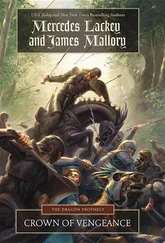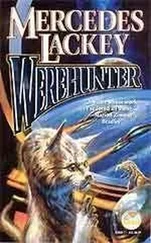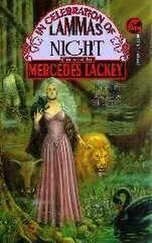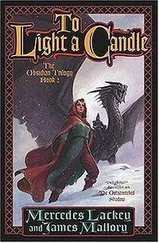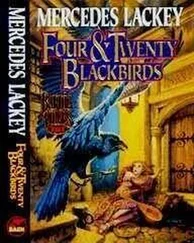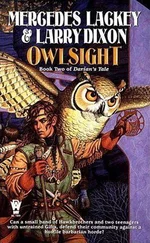All he had to do was whisper Lightman’s name, and his request, and by midnight, it was taken care of.
By twelve-oh-one, he was truly, sincerely, repenting that he had ordered his wife’s murder—or whatever other little thing he had requested. Truly, sincerely, and deeply, confessing himself to God and showing that repentance in concrete sacrifices of tears and cash. From the beginning, he had told himself that he was acting on God’s behalf, spitting in the face of Satan by tricking the Great Trickster. He told himself every time he prayed that he was working for God.
It was a foolproof scheme, and the seven years flew by. During the last year, he was cautious, but resigned. He knew that Lightman would arrange for his death, so there was no point in trying to avoid it. And, indeed, on the very instant of the seventh-year anniversary of the contract, he had a heart attack. As he prayed before his video-congregation. Just like Brother Lee.
* * *
Lester stood beside the body in the expensive hospital bed and stared down at it. The monitors were mostly flatlined; the only ones showing any activity were those reporting functions that had been taken over by machines. Strange, he thought. The man in the bed looked so healthy.
“Ah, Lester, you’re right on time,” Lightman said genially, stepping around from behind a curtain.
Lester shrugged. “Is there any reason why I shouldn’t be?” he asked, just as genially. He could afford to be genial; after all, he wasn’t going to be leaving with Lightman.
“What, no screaming, no crying, no begging?” Lightman seemed genuinely surprised. “Normally your kind are the worst—”
Lester only chuckled. “Why should I be worried?” he replied. “You only think you have me. But I repented of every single one of those crimes I asked you to commit. Every death, every blackmail scheme, every disgrace—I even repented the small things, repented every time I accepted someone’s Social Security check—every time I arranged a special-effects miracle or convinced someone to leave me everything in their will—”
But he stopped as Lightman began laughing. “Oh yes, you did,” Lightman told him merrily. “And my Opponent has forgiven you for those sins. But you didn’t read the fine print.” He handed Lester the copy of his contract, and pointed to the last page. “Read the commentary, dear boy. Carefully, this time.”
The words leapt off the page at him.
Sins repented will be forgiven by the Opposition, but forgiveness does not imply repayment. All sins committed by the party of the first part must be repaid to the party of the second part regardless of whether or not forgiveness has been obtained .
“These are the sins you’ll be repaying, my boy,” Lightman said pleasantly, waving his hand. A stack of computer forms as tall as Lester appeared beside him. “But that is not why I am truly pleased to have you among us—”
Another stack of computer forms appeared, impossibly high, reaching up as far as Lester could see, millions of them.
“This stack—” Lightman placed his hand on the first pile “—represents all the sins you committed directly. But this pile represents all those you encouraged others to commit, with your doctrine of salvation through donation and hate-thy-neighbor. And those, dear boy, you did not repent of. You are a credit to our side! And we will be so happy to have you with us!”
The floor opened up, and Lightman stood in midair. “Learn to enjoy it, dear Lester,” he chuckled, as the demons drew the false prophet down among them. “You’ll reach your depth soon enough.”
Lightman smiled as the mountain of sin forms buried Lester Parker. “So I believe.”
Mercedes Lackey and Larry Dixon
Larry and I are members of the North American Falconry Association and federally licensed raptor (bird of prey) rehabilitators. We have to be pragmatic and scientific—when you take care of predatory birds, they eat meat, and when you teach them to hunt so that they can be released, they have to learn how to make kills on their own. There is no shortcut for that process, and no way to “fake” making a kill. Needless to say, we Do Not Do Politically Correct, although we have not (yet) suffered harassment at the hands of people with Way Too Much Spare Time On Their Hands that some other rehabbers and fellow falconers have. Nevertheless, we’ve gotten very tired of seeing people who have never lived next to a field of cattle claim that cows are gentle, harmless, and intelligent—or try to raise their dogs on a vegetarian diet. So when Mike Resnick asked us for a story for Dinosaur Fantastic, we knew immediately what we were going to write for him.
Two men and a woman huddled in the wet bushes surrounding the GenTech Engineering facility in Los Lobos, California. Across the darkened expanse of expensive GenTech Grasite lay their goal; the GenTech Large Animal Development Project. It was “Grasite,” not “grass”; this first product of GenTech’s researches was a plant that was drought-resistant, seldom needed mowing, and remained green even when dry; perfect for Southern California. Sadly, it also attracted grasshoppers who seemed to be fooled by its verdant appearance; they would remain on a Grasite lawn, hordes of them, trying valiantly to extract nourishment from something the texture and consistency of Astroturf, all during the worst droughts. Anyone holding a garden party in Hollywood had better plan on scheduling CritterVac to come in and sweep the premises clean or his guests would find every step they took crunching into a dozen insects, lending the soiree all the elegance of the wrath of Moses.
But Grasite was not the target tonight; these three had no argument with gene-tailored plantlife. In fact, they strongly supported many of GenTech’s products—RealSkin, which reacted to allergens and irritants exactly the way human skin did, or Steak’N’Taters, a tuber with the consistency and taste of a cross between beef and baked potato. But all three of them were outraged by this assault upon helpless animals that GenTech was perpetrating in their new development lab—
Mary Lang, Howard Emory, and Ken Jacobs were self-styled “guerrillas” in defense of helpless beasties everywhere, charter members of Persons In Defense of Animo-beings; P.I.D.A. for short. There was nothing they would not do to secure the rights of exploited and abused animals. This year alone they, personally, had already chalked up the release of several hundred prisoner-rats from a lab in Lisle, Illinois. It was too bad about the mutated bubonic plague spreading through Chicago afterwards, but as Ken said, people had choices, the rats didn’t. Tonight, they were after bigger game.
DinoSaurians. Patent Pending.
Real, living, breathing dinosaurs—slated to become P.O.Z.s (Prisoners of Zoos) the world over. And all because some corporate MBA on the Board of the San Diego Zoo had seen the attendance numbers soar when the Dunn traveling animated dinosaur exhibit had been booked there for a month. He had put that together with the discovery that common chickens and other creatures could be regressed to their saurian ancestors—the pioneering work had already been done on the eohippus and aurochs—and had seen a goldmine waiting for both the zoos and GenTech.
“How could they do this to me?” Mary whined. “They had such a promising record! I was going to ask them for a corporate donation! And now—this—”
“Money,” Ken hissed. “They’re all money-grubbing bastards, who don’t care if they sell poor animals into a life of penal servitude. Just wait; next thing you’ll be seeing is DinoBurgers.”
Читать дальше

